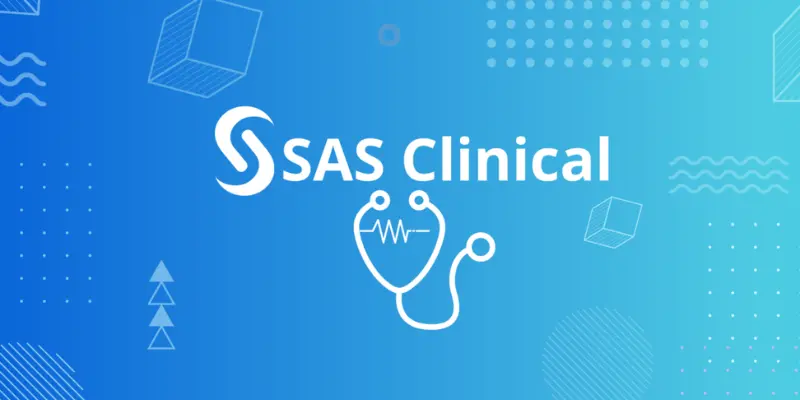
SAS (Statistical Analysis System) has long been a cornerstone in clinical research, offering robust tools for data management, statistical analysis, and reporting. However, while SAS provides powerful capabilities, it has its challenges. Understanding these challenges is crucial for researchers, statisticians, and data managers who rely on SAS for clinical trials. This blog explores the common challenges associated with using SAS in clinical research and offers insights into navigating these hurdles effectively. For those looking to enhance their skills in SAS, SAS Training in Chennai can provide valuable knowledge and practical experience.
High Costs of Licensing
One of the most significant challenges of using SAS in clinical research is the high cost associated with its licensing. SAS is a commercial software package, and the expenses can be substantial, particularly for smaller organizations or academic institutions. These costs can limit access to SAS, restricting its use to well-funded clinical trials or large pharmaceutical companies.
In some cases, organizations may need help to justify the investment, especially when free or open-source alternatives like R and Python are available. Consequently, researchers may need to weigh the benefits of SAS against the financial constraints they face, which can lead to challenges in project planning and execution.
Steep Learning Curve
SAS has a steep learning curve, particularly for those new to programming or statistical analysis. While the software offers extensive documentation and resources, mastering its syntax and functionalities requires significant time and effort. This learning curve can be a barrier for new users, potentially delaying project timelines and increasing reliance on experienced SAS programmers.
Moreover, as clinical trials become more complex, the need for advanced SAS programming skills becomes essential. Organizations may need help finding qualified personnel with the necessary expertise, leading to data analysis and reporting challenges. This highlights the importance of Clinical SAS Training in Chennai, which can equip professionals with the skills to navigate these complexities effectively.
Limited Flexibility
Although SAS is a powerful tool, its structure and flexibility can be rigid. Researchers often need help with implementing unique or custom analyses that may fit neatly into the standard SAS framework. This limitation can lead to difficulties in adapting SAS to meet specific research needs or regulatory requirements.
Additionally, SAS’s inflexibility can make integrating with other software tools and systems commonly used in clinical research is challenging. As data management and analysis increasingly rely on multi-platform environments, more flexibility is needed to ensure the efficiency of clinical trials.
Data Management Challenges
Data management is a critical component of clinical research, and SAS is no exception. One common challenge faced by researchers is the complexity of managing large datasets. As clinical trials generate vast amounts of data, effectively organizing, cleaning, and analyzing this information can be daunting. To address these challenges, Clinical SAS Training can provide researchers with the necessary skills to manage and analyze data efficiently.
SAS requires meticulous data preparation and validation processes, and any errors during these stages can lead to inaccurate results. Additionally, maintaining data integrity while using multiple versions of datasets and different SAS programs can complicate the analysis, increasing the risk of mistakes.
Regulatory Compliance
Compliance with regulatory standards is paramount in clinical research, and SAS users often face challenges in ensuring that their analyses meet these requirements. Regulatory agencies, such as the FDA and EMA, have specific guidelines for statistical methodologies and reporting, which can be complex and stringent.
Researchers must diligently document their methodologies, data manipulations, and statistical analyses within SAS. Adherence to these regulations can result in significant delays in the approval process or, in some cases, disqualifying the trial results.
Lack of Community Support
The SAS user community is relatively smaller than other programming languages and tools. While resources such as user groups and forums are available, the level of support and collaboration may not be as extensive as that found in communities for open-source alternatives like R and Python.
This lack of community support can make it difficult for researchers to find solutions to specific problems or seek advice from peers, potentially prolonging project timelines and leading to frustration. Engaging with a Training Institute in Chennai can provide valuable resources and support to help researchers overcome these obstacles.
While SAS remains a powerful tool for clinical research, it has challenges. High licensing costs, a steep learning curve, limited flexibility, data management issues, regulatory compliance requirements, and a lack of community support can pose significant hurdles for researchers. By acknowledging these challenges, organizations can better prepare to navigate the complexities of using SAS in clinical trials.
Investing in training, developing robust data management practices, and fostering collaboration within the research community can help mitigate these challenges and enhance SAS’s overall effectiveness in clinical research. Ultimately, understanding SAS’s limitations and complexities allows researchers to make informed decisions and optimize their clinical trial processes.
Also Check: How Can SAS Enhance Business Intelligence and Decision-Making?
